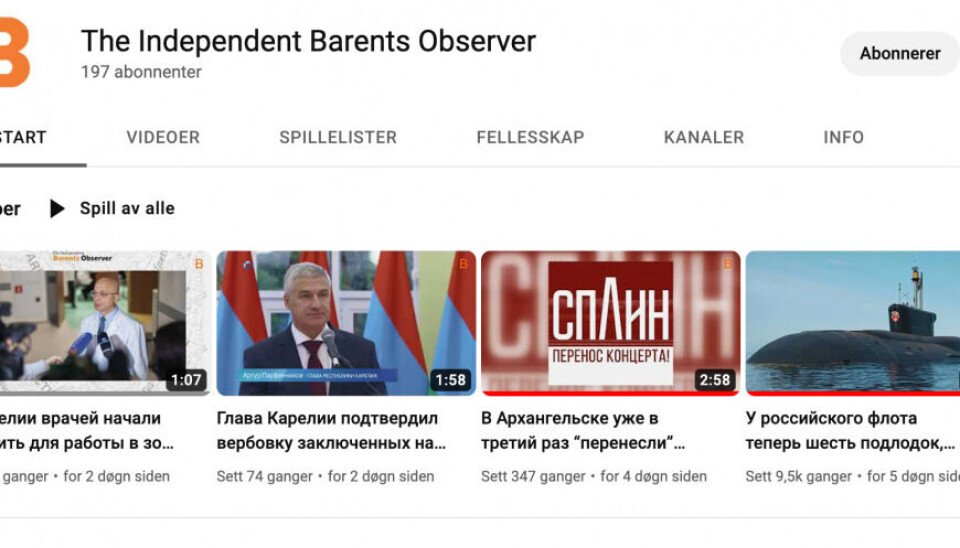
The Barents Observer makes another crack in Kremlin’s censorship wall
Here is our language YouTube channel.
Independent news from the Barents Observer has been blocked for almost four years. But as Russian authorities step up repressive measures against media freedom, our small newsroom is happy to introduce yet another uncensored way of providing news on the internet.
The story below, as an example, is about how the Military Medical Academy has started to train doctors in Karelia for work in the war zones in Ukraine.
News via YouTube is a simple and effective way to help people inside Russia receive uncensored and unbiased reporting on the internet.
The blocking of the Barents Observer by censorship agency Roskomnadzor came in February 2019. In October this year, a second order to block the Norwegian-based newspaper came from the state attorney in Moscow. The Russian General Prosecutor claimed the news stories from the borderland up north “seeks to destabilize the political situation in Russia.”
The newspaper’s domain name was shortly later again added to a federal list of blocked websites.
This autumn, the Barents Observer expanded its newsroom with exile reporters from Russia and Ukraine. The Russian edition of the newspaper today publishes many more stories from the northwestern regions of Russia.
Other ways to circumvent censorship
Since the Barents Observer was blocked on Russian territory in 2019, it has actively worked to find ways to circumvent the blockage. The newspaper today makes all articles available on a mirror domain, and audio stories are posted as podcasts.
In addition, the newspaper posts all stories on social-media VK, Telegram, Twitter and Facebook. It also has newsletter dispatches in both English and Russian.
The most common way to pass through Kremlin’s attempted censorship is the use of VPN apps. This has skyrocketed in Russia in recent years, especially after the brutal military attack on Ukraine was followed domestically by new laws banning to publish information about the war that is not approved by the Defense Ministry or other official organs.
“Block this newspaper to hell”
The blocking in 2019 created a stir in Norwegian-Russian relations and the Russian Ambassador to Norway was summoned to the Foreign Ministry in Oslo.
It also created a stir in Russia. A major number of Russian media reported about the case. Among them were several hardline government media, as well as media believed to be controlled by Yevgeny Prigozhin.
“Block this newspaper to hell,” said Vitaly Milonov, the Member of the State Duma. In an interview with the Federal News Agency, Milonov lashes out against the Barents Observer, saying that it represents “degeneration and decay» and that «its ideology and its clients is based on people with queer psyche.”
“We must send them a note of protest, call in the ambassador of Norway and say: what you are doing can affect our relations, if you continue to produce this kind of materials for Russians in the Russian language.”
In an interview with Politika Segodnya, Aleksandr Malkevich, leader of Russia’s Public Chamber on information, media and mass communications, said that «it is time to set an example» against the Barents Observer.
“We need one striking show of corporate punishment,» he underlined. «And if that will not be enough, then we will need to whip them two or three times,” he continued.
“We have to do it as tough as possible within the frames of our legislation, with the maximum level of demonstration and publicity.”














